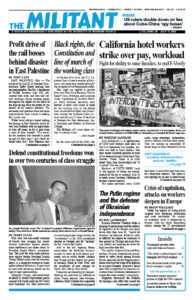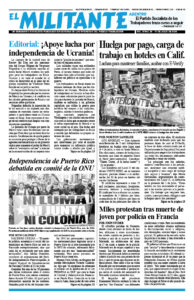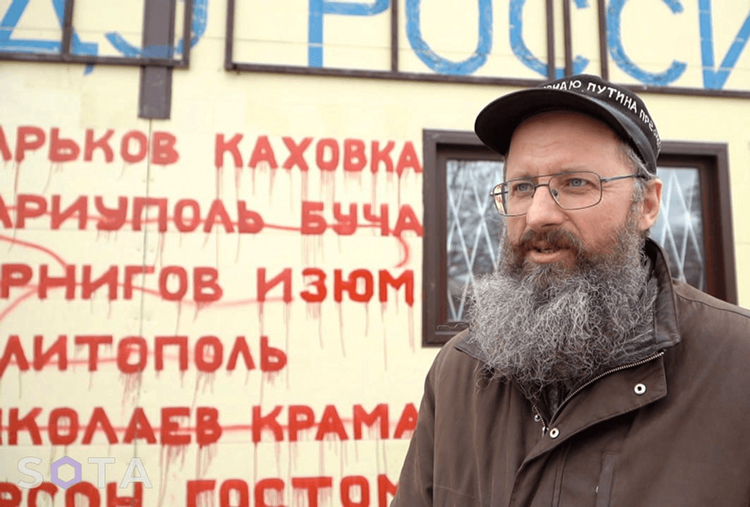Russian President Vladimir Putin is purging his government and the military of supporters of the Wagner mercenary forces after their June 24 “march for freedom” on Moscow. While he seeks to refortify his regime he continues to lose ground in Ukraine and more Russian soldiers are speaking out about the high casualties they face.
The conflict between Putin and Wagner boss Yevgeny Prigozhin was precipitated by heavy losses among Russian forces, especially for the Wagner mercenaries who bore the brunt of the fighting in occupied Donetsk. Moscow’s forces have been pushed back by tenacious resistance from Ukrainians determined to restore the entire country’s sovereignty.
Prigozhin denounced the Kremlin for leading a war effort that caused the death of tens of thousands of Russian troops. Combat deaths from the war have exceeded the combined losses of all Russia’s previous conflicts since World War II. As Prigozhin’s forces ran into stiff resistance as they neared Moscow, the mercenary boss cut a deal with Putin — at least temporarily — and left Russia for Belarus.
Putin was alarmed by the degree of support to the Wagner mutineers among army officers and by many Russians in Rostov-on-Don, when Prigozhin’s forces briefly took over the city, the base for Putin’s forces in the Ukraine in southern Russia.
Prigozhin’s armed march was triggered by the Russian Ministry of Defense order bringing his forces directly under Moscow’s command. After denying any direct Moscow connection with Wagner for years, Putin revealed June 27 that the group had been heavily bankrolled by the Russian state. Billions of dollars, he said, were channeled to fund its international network.
Opposition to Putin’s war
Store owner Dmitry Skurikhin from the village of Russko-Vysotskoye in the Leningrad region is set for trial July 19, accused of “discrediting” the Russian army. He has been charged several times since covering his store with anti-war slogans.
He painted a yellow stripe onto the Russian flag on the roof, “as a gesture of support for Ukraine. To be honest I was afraid to hang it. This means taking the side of Ukraine. But I’m on her side!” he said on a Telegram channel.
Since the mutiny Russian forces have been hit by further unrest. In a video appeal issued July 2, soldiers from Russia’s 1428th regiment say, “We don’t want to carry out senseless and suicidal orders.” They say they joined territorial defense units in Russia but were sent abroad to the frontline in Ukraine.
A similar video was released June 23 by Russian conscripts in Zaporizhzhia in eastern Ukraine. They complain that they were asked to defend trenches with almost no protection in the face of Ukrainian forces’ counteroffensive, suffering heavy losses.
Origins of Putin regime
A capitalist-oriented government emerged in Russia from the breakup of the Soviet Union in the early 1990s. Remnants of the Stalinist bureaucracy staged an attempted coup in 1991. But tens of thousands of working people in Moscow, Leningrad and elsewhere, seeing the threat to their newly opened political space, took to the streets and faced down the tanks.
Under “shock therapy” privatization programs heavily backed by Washington, Moscow bureaucrats seized state enterprises looking to enrich themselves.
The outcome for working people was devastating. Production dropped 40% in Russia in the opening years of the 1990s and joblessness hit double digits. Real wages plunged and pensions, health care and other social programs were slashed. More than half of all deaths of working-age Russians were due to alcoholism in the 1990s. Birth rates collapsed to an all time low.
Amid the widespread plunder, Putin, a former agent of the KGB, the all-pervasive murder machine used by the Stalinist regime to crush opposition to its rule, emerged as a rising political figure. He headed the FSB, the successor to the KGB, and set out to constrict political rights. He was elected president in 2000.
Putin promised the newly emerged Russian capitalist class he would restore Moscow’s sway over its “near abroad” — former Soviet Republics like Ukraine. He also acted as an arbiter between rival forces among the exploiting class. Using KGB methods, he consolidated power through patronage alongside the arrest, torture or murder of bourgeois political opponents.
After Viktor Yanukovych, the Russian-backed Ukrainian president, was toppled by the popular Maidan uprising in 2014, Putin used 25,000 Russian troops stationed in Crimea to take control there and then mercenary forces to seize parts of Donetsk and Luhansk.


